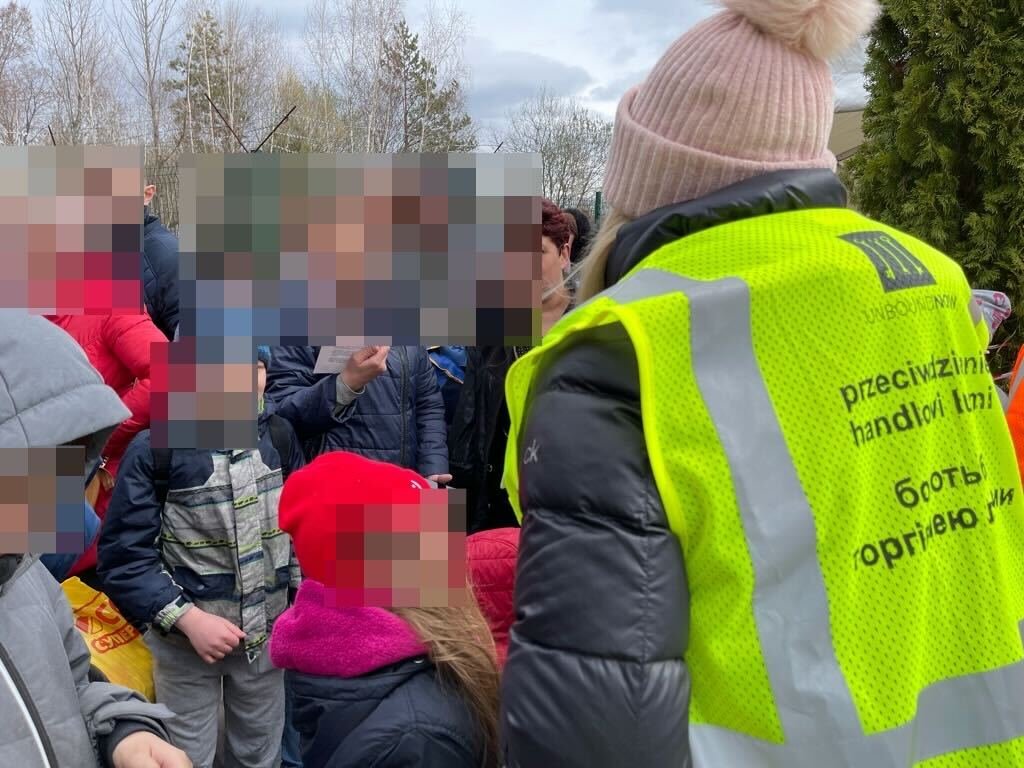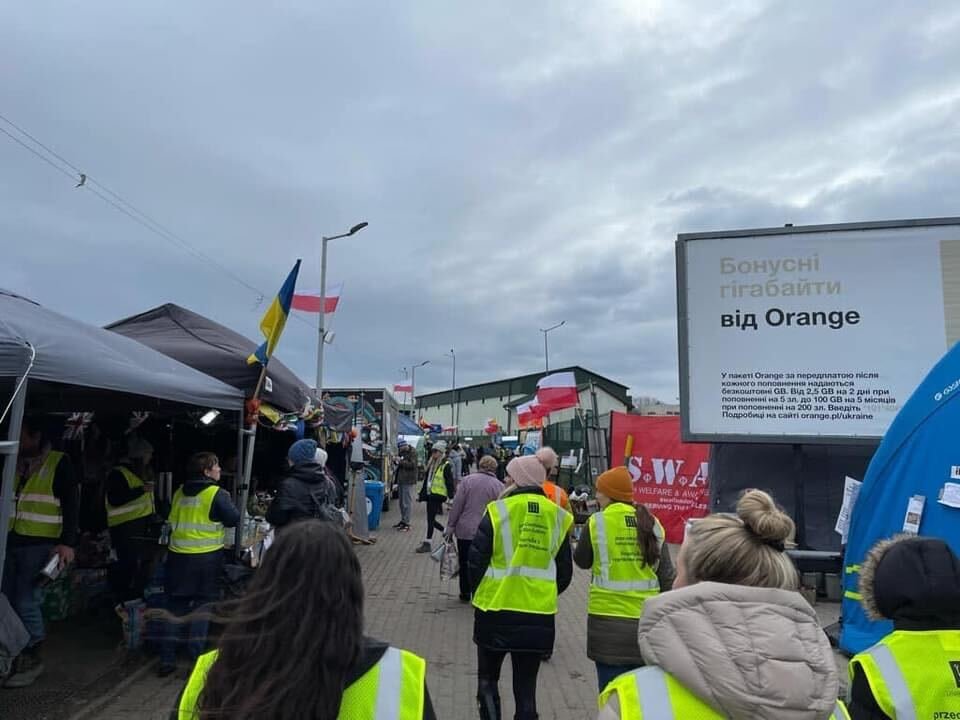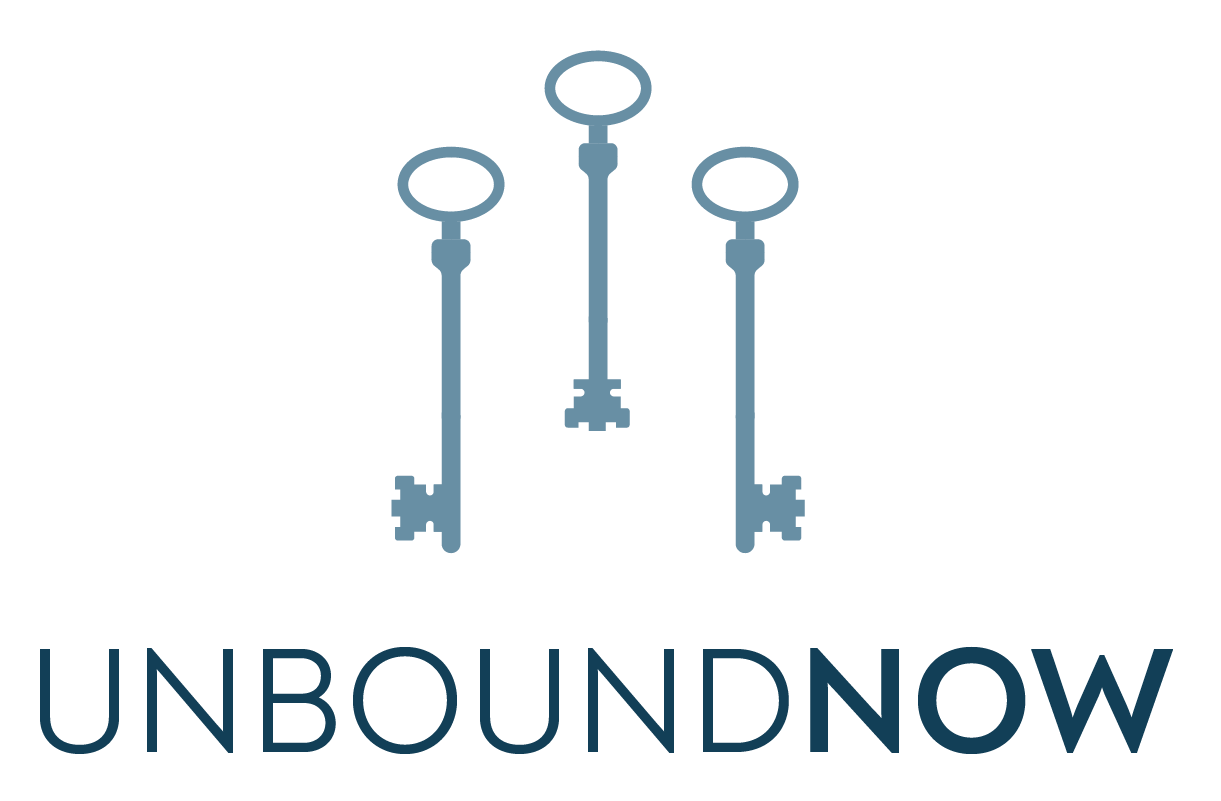Shared by Amanda Buenger, Executive Director of Unbound Bryan College Station
I am still processing all that our team experienced on our recent trip to the Poland/Ukraine border. Before leaving, I had a few expectations of what we might experience in a war torn crisis situation, but upon arrival, I was continually blown away by the beautiful spirit of the Ukrainian people. In the middle of their desperation and deep pain of seeing their country torn apart, they carried a visible strength and joy. The love for their country was indescribable. One day while we were on the Ukraine side of the border, I witnessed a scene I will never forget. Refugees standing in line spontaneously started singing the Ukrainian National Anthem. It was a very sacred moment; the reverent silence spread across the entire area as they sang. Even up until their last steps across the border into Poland, they were proudly declaring their love for their home.
While Team 3 was there, waves of refugees arrived at the border from southeast Ukraine where the most recent bombings had occurred. They had traveled days from their war torn cities, leaving everything behind – even their families. All that was with them was the bags they could carry. As we communicated with refugees waiting in line to cross the border, you could hear the depth of their pain, see the effects of trauma, and feel the sense of utter desperation.



This desperation is what leads to human trafficking vulnerability. Ukrainian refugees are desperate for a safe place to stay, a ride to reach their next destination, or even just someone to help them understand what the journey is like and how to cross the border. Women and children are easy targets to traffickers who can offer to meet these needs. This is where Unbound is helping; passing out “travel safely” cards and educating migrants on the red flags that indicate an unsafe situation.
During our trip, myself and teammate Detective Scaramucci felt led to walk down a particular street in Ukraine. This area was clearly a transportation hub and was filled with Ukrainians getting in and out of buses, vans, and other vehicles. Refugees figuring out how to get across the border without knowledge of how the process works are most vulnerable to the tactics of exploiters. These transition points are places we know bad actors target people in need.
As we walked down the street observing our surroundings, something didn’t feel right. We walked by a put-together woman who was talking with three women and asking for their travel documents, including their passport information. We approached these women and with the help of our translator, began to ask them about the context of the conversation. They shared that they had been promised transportation over the border and connection to a driver in Poland in exchange for a fee and agreeing to carry a bag across with them. They had given the woman their passports and paid already.
We immediately pulled the 3 women aside and indicated that this was a trafficking situation. The woman had lied to them about the cost to cross to the border; there is no fee. She lied about needing their travel documents; only the border agents need to see them. She lied about having a verified driver; only certain drivers who are registered with proper documentation can pick people up on the other side.
We walked with these women to the line to cross the border, continuing to tell them not to trust this woman and what she is saying. Shortly thereafter, the woman trafficker became frustrated, realizing we had intercepted the attempt, and she ran off. We were able to get pictures and run some history on this particular individual which confirmed her involvement with the human trafficking world. After she left and we were able to communicate more freely with these women, one said, “As soon as you walked up and handed us your card, I knew my gut was right and this was a sign from God that we shouldn’t go with that woman.” Another said, “I am just so thankful you showed up. We didn’t know anything. We didn’t know what to do.” Because of our presence at the border, we were able to prevent these three women and their children from being trafficked that day.
In addition to having intentional conversations with refugees crossing over the border, our team handed out thousands of information cards to refugees as they waited in line. These cards have a human trafficking hotline number specific to Poland and basic tips to avoid becoming a human trafficking victim. Tips like the information we shared with the three women.
Our team was also able to establish and strengthen some key foundational partnerships with other organizations, law enforcement, and governmental leaders that will continue to help establish the work of Unbound in Eastern Europe. To protect more women and children, Unbound’s presence must scale quickly through ongoing teams and increased local partnerships. Humanitarian aid organizations from all over the world are coming together to work collaboratively in providing for the needs of Ukrainian refugees.
It was an absolute honor to serve at the Poland/Ukraine Border. Whether we were providing human trafficking prevention materials, meeting with key partners, or just offering small acts of kindness like holding a woman’s baby, changing a diaper, or getting them food or a stroller, our team was constantly meeting the next need and loving the next person. Reducing vulnerabilities and increasing empowerment to recognize the tactics of trafficking is essential work that does make a difference.
It was such an honor to hear the stories and see the challenges these refugees have overcome. It has shifted my perspective and increased my hope to see the strength and determination of the Ukrainian people and the responsiveness of our community to give and send Unbound to serve and protect. Tragic circumstances can’t change the fact that love is a universal language, and God’s love is certainly on the move in Eastern Europe.
Team 3, In the News:
